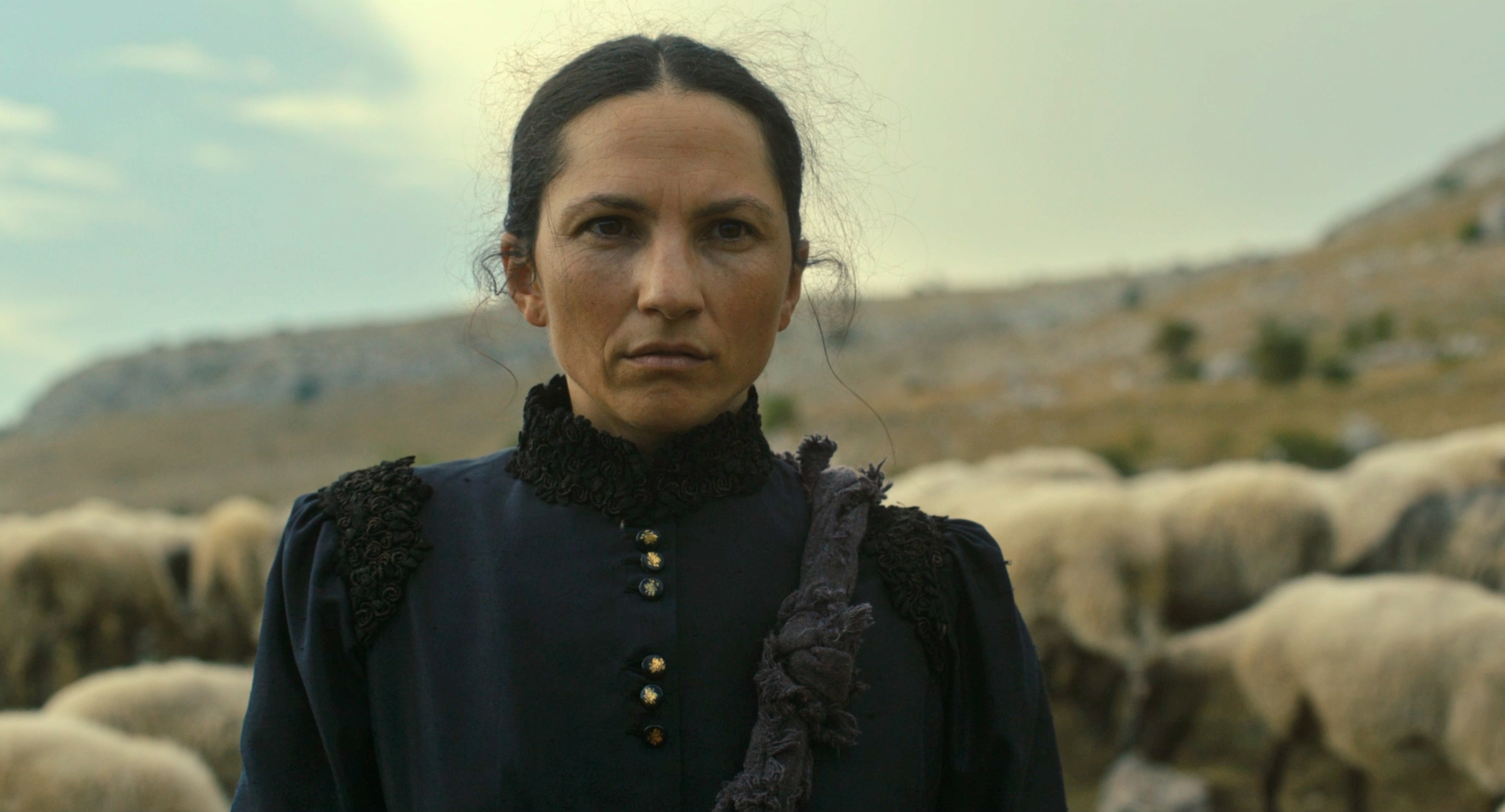God Will Not Help
Bog nece pomoci
VERDICT: A woman's strange arrival upends order in a Croatian shepherd clan in Hana Jusic’s powerful, brooding period drama.
In the Croatian mountains early last century, the mysterious arrival of an outsider sparks attraction and animosity in equal parts among a clan of shepherds, in Croatian director Hana Jusic’s ominous and riveting sophomore feature God Will Not Help, which screens at the Sarajevo Film Festival on the close heels of its Locarno world premiere.
The brooding drama comes nearly a decade after her Venice-awarded feature debut Quit Staring at My Plate (2016), about a young woman left as family breadwinner after her domineering father suddenly dies, and promises to be received by festival audiences just as enthusiastically, as it creates an arresting and painterly, slightly spooky universe for its exploration of similar themes of societal entrapment and radical escape.
When Teresa (a suitably magnetic and intense Manuela Martelli) turns up at the household of the Mitrovic family one night her arrival, neither invited nor forewarned, is as dramatic as the thunderstorm that is raging in the highlands outside. She’s travelled on an arduous boat journey from Chile, but she might as well be from another galaxy. At any rate, it seems she “fell from the sky” to Milena (Ana Marija Veselcic), who was left by her brothers to mind the place for the summer while they take their flocks to less parched ground, and is the only person at home. She brings the shocking news that she is the wife of Marko, the eldest, emigre son of the family, who has died in a ranch fire, leaving just the bones that she has brought to bury. At least, that’s her story — and it will take some time for the unvarnished facts to emerge.
Not sharing a language, the two women struggle to communicate through prayer book illustrations and embroidered pictures, but an affinity is immediately palpable between these two misfits, who sense in each other kindred wounds of adversity, in a film in which shared words and blood are not the main determinants of human connection and solidarity. Milena is initially reluctant to escort Teresa uphill to the other relatives — a preference for solitude easy to fathom when youngest brother Nikola (Mauro Ercegovic Gracin) appears and with bullying swagger starts trying to order them about.
Milena’s brothers have written her off as unmarriageable due to a perceived strangeness and unwarranted local reputation as a “mute,” and she is all but a pariah to them. The marital prospects of Teresa, however, immediately consume the men’s interest when they meet her. It’s customary that if one brother dies in a family of shepherds, the widow should be married to another, in order that the land can remain within the kin. Nikola wastes no time in stating his claim for her hand, even though the ardently devout mourner is drawn instead to the spiritual capacity for comfort she senses in middle brother Ilija (Filip Djuric), whose gentle demeanour and lack of aptitude for physical labour have also made him an outcast of sorts within the family.
Tensions and mistrust flare up when the wildcard that is Teresa threatens their rigid hierarchies. With her funereal neck-to-toe, fitted black dress, and her purposeful stride, she cuts a striking figure against the momentous landscape (impressively shot by D.O.P Jana Plecas); an otherworldliness that only fuels the superstitions of a community with no precedent for welcoming to their hearth a foreign woman with no verifiable backstory, and only incomprehensible Spanish for explaining herself. When a wolf closes in on a flock of sheep, it’s perhaps inevitable that Teresa is accused of summoning it.
This world is an obscured one of candlelight and shadow, where deception and secrets are only gradually revealed, and power imbalances mean the path to freedom lies in furtive and extreme acts for those who dare to flout the established codes. An inspired soundtrack as austere as the hills adds a modern and dynamic edge to the slowburn suspense. Against the brutal sparring for dominance of the men, allegiance between Teresa and Milena grows, and a solidarity in rebellion as nourishing as it is dangerous emerges as its own form of salvation.
Director, Screenwriter: Hana Jusic
Cast: Manuela Martelli, Ana Marija Veselcic, Filip Duric, Mauro Ercegovic Gracin, Niksa Butijer
Producer: Ankica Juric Tilic
Cinematographer: Jana Plecas
Editor: Jan Klemsche
Music: Stavros Evangelou, Iris Asimakopoulou, Vasilis Chontos
Production companies: Kinorama (Croatia), Nightswim (Italy), MicroFILM (Romania), Horsefly Films (Greece), Maneki Films (France), Perfo Production (Slovenia)
Sales: New Europe Film Sales
Venue: Sarajevo (Feature Competition)
In Croatian, Spanish
137 minutes


